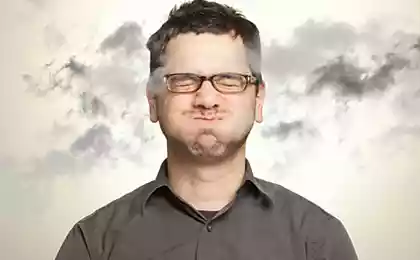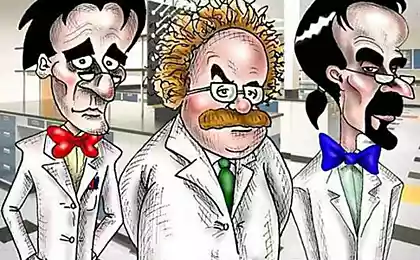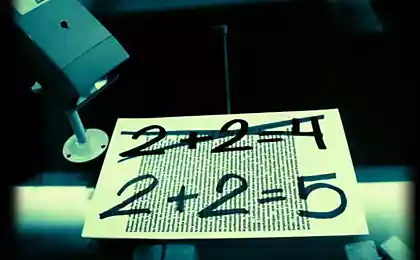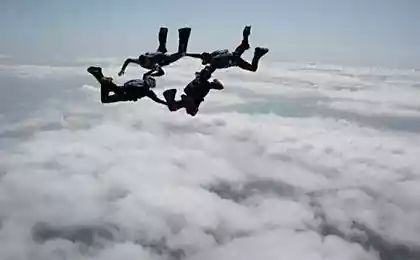990
Deadly errors (5 photos)
In our world there are a bunch of deadly things: crime, natural disasters, lawn mowers or volleyball. Despite this, most of us is in the happy delusion as to how to behave during a horrific, life-threatening situations. For example:
1. We believe that we know what to do
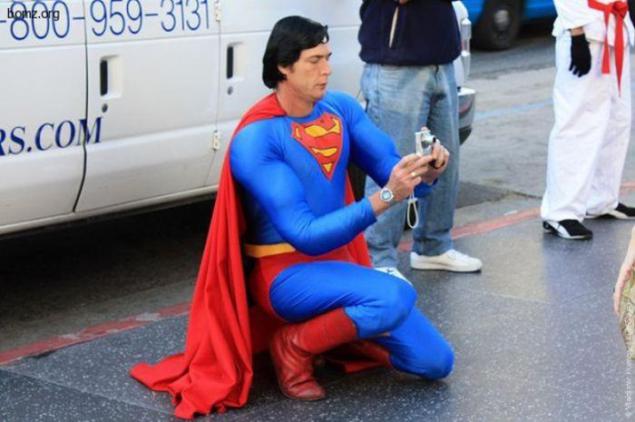
News of the shocking events reach us through the media. Constantly there is something terrible - the attacks, the victim's funeral, and for each event appear in the Internet comments like that about the shooting in Colorado: "Let's see. Ask yourself one question: why no one ran for a psycho with a gun? Instead, everyone ran away from him, like lemmings to the cliff. I - idiot who ran on to rifle fire, to protect others. Yes, I'm a fool. But if I was there, everything would have gone differently. Where have all the heroes of America? Why is no one brave soul tried to stop the shooting? »
But another person says about another shootout in another forum:
"I do not think that the child was planning to die soon, he was shot, because at that time it was the easiest way for him. He remained one minute before the arrival of the police, and he knew it. But if I was there, he did not have opened fire. I would try to surprise him when he was distracted on to something. The longer you wait, the more people will die ».
We are almost sure that none of you will not write anything like that. But most people sincerely believe that they would have acted just fine during the crisis, even if they have no knowledge or experience about something like that. This means that even if we did not rush his assurances over the internet, many of us unconsciously believe that whether at the scene so smart and amazing, we, the victims would not suffer.
But we are to blame for these thoughts can not, because ...
2. Movies give us hope terrible
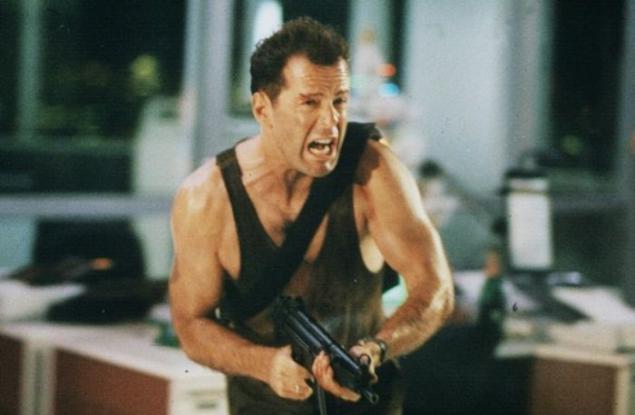
In the movie "The Dark Knight" Joker throws a lawyer and the subject of love interest Rachel Dawes main characters from the window of a multistory building. At the last second Batman arrives and rescues her. The reaction of Rachel, which a moment ago was expecting certain death? She looks at Batman as if they had just finished making love, and says: "Let's not repeat it».
In the same film attorney Harvey Dent is in the center of the courtroom, the witness stand for snatches the gun, suggests Dent and pulls the trigger. Misfire. And Dent gradually coming to him, grabs the gun and releases a witty joke. It does not matter what these guys are like people with a serious brain injury: they - the positive hero, at least for the moment, and therefore do not experience fear.
It's not a movie about Batman, and not even in the genre. Take any scene from any film, which shows any crisis situation, and, most likely, it will be the hero who does not panic. In horror films survive calm sensible character: their friends, fleeing in panic from the chainsaw, as a rule, be sure to die. And Bruce Willis and Sigourney Weaver, looking with disdain at their weeping comrades beta males, and then coolly to save the situation?
Movies have taught us that the characters, whether specially trained police officers, courageous teenagers or middle-aged housewife, when the mortal danger remain calm and reasonable. And since we all want to consider themselves the protagonists of our own movies, we naturally expect from themselves, that respond to the crisis as worthy.
Unfortunately, in real life ...
3. Our brain does not work right, no matter what we may think about yourself
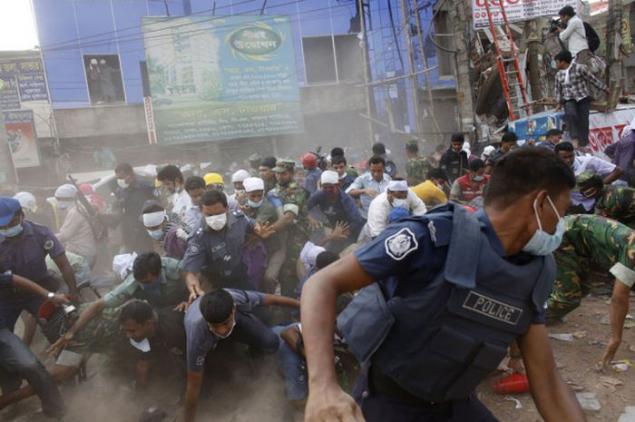
Our expectation is based on the fact that in an extreme situation, our brain will work as well as in everyday life. Of course, maybe we will be a little scary, but we will overcome their fear and take all necessary steps in order to save others.
But the truth is that during the crisis, you are not just afraid - you are dealing with your brain, trying to turn you into a silent or screaming animal desperately trying to survive. No more than that.
Once you understand that you are in mortal danger, your brain starts off its higher functions to redirect as much energy to the task titled "get away." This means that you may not be able to perceive even the most basic information like voice commands: "Hey, do not go there, there is a bear!" Or "Stop, bears hate it when they slap!».
When you are scared to the bone, the brain can stop to take any auditory information at all. For example, during investigations of aircraft accidents have been found records showing that the pilots ignored warnings of air traffic controllers, who were trying to say what is wrong and how to fix it. With this level of stress physically pilots were unable to hear the warning.
To make matters worse, when your brain goes into panic mode, you can have hypersensitivity to visual stimuli and begin to notice things in a calm state would have ignored. These sudden visual signals should be in theory serve you well ... but imagine that you are trying to find a way out of the burning building, and your brain is extremely bright shows you unusual and deadly picture - you can see how falling burned-out beams like the left and on your right with a bang fire breaks out. Not too comforting, though?
And yet the films do not teach us that ...
4. Our instincts have deceived
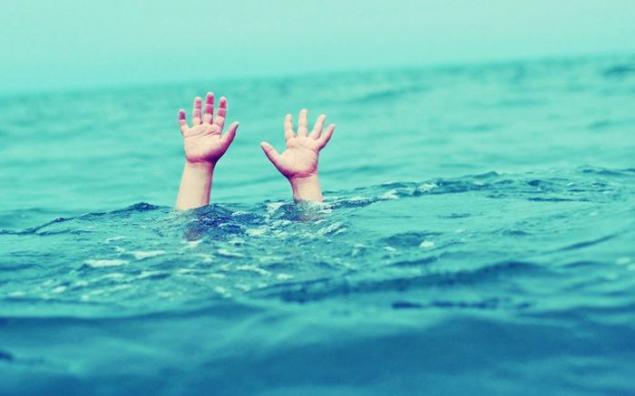
Our brains can make us crazy clowns, when things get bad, but this is only the beginning. Due to either an evolutionary failure, or the will of Satan, the human body is also equipped with a number of "survival instinct" that can kill us faster than the nuclear bomb.
For example, you are drowning. Movies and television have long taught us that buried behave quite rationally - they wave their hands and call for help, as a rule, try to attract the attention of the nearest person. But in real life a drowning man shows much less activity.
The body begins to involuntarily commit a set of pre-programmed movements, known as "instinctive drowning response": hands will make flapping in the water in an attempt to keep his mouth above the water surface, and having passed the vocal cords. The drowning man can not make a noise. In fact, the situation where the swimmers ignored sinking a couple of meters from them human - not a rarity, because everyone expects from drowning conduct intelligent people, but not quiet bultyhaniya in place.
This is just one of the ways that our instincts may bring us. Frozen to death of people often find naked, because in severe hypothermia may appear to us that we are hot. Divers in a panic pulled from the mouth breathing tubes in the belief that if you get rid of that pesky gag, breathing becomes easier.
In other words, a person in an emergency does not behave like a hero, but as a fool.
However ...
5. When our brains are in a critical situation, retains the ability to function normally, it may be even worse
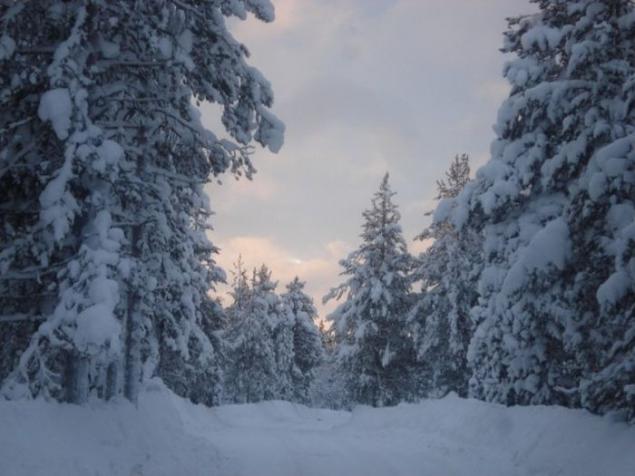
Canadian researcher, has been studying the behavior of people, lost and surviving in the wild, I found that one of the most useful factors for survival - is the presence of a child less than six years of age. Surprisingly, little children, barely understand how to bring the spoon to his mouth to show a more reasonable behavior than adults when it comes to survival.
Why is that? Well, imagine that you - a six-year child, lost somewhere in the Far North. If you face frostbite, then you are likely to find themselves a place warmer and there will roll up to wait for 12 hours you will save. Actually, something like this should be done.
And what do in this situation, most adults? They start to say to yourself, "Damn, I'm lost. We need to understand where I came from. Or walk along the river. Or not - to go to the north! Come on, you do it! ».
We adults always analyze terrible situation, often choosing as a solution methods that will make us worse. We leave our cars if stuck in the open field, in the wilderness or during a snowstorm, although much safer to stay inside. The campaigns we wander away from the tourist trails, because they consider themselves smart enough to find your way back. Or we convince ourselves that these tracks can not belong to a bear or a mountain lion.
We want to feel intelligent people who can maintain control over the situation, and to do at least something, because it's not as scary as to admit that we have no idea what should do.
That is why in any circle Survival will tell you that the first thing you should do if you are lost in the woods - a stop, build a fire and stay in place. This will help you not only to keep warm and ward off wild animals, but also to give a chance to calm down and really analyze their future actions, rather than immediately implement "reasonable" plan, because of which you can eventually die.
1. We believe that we know what to do

News of the shocking events reach us through the media. Constantly there is something terrible - the attacks, the victim's funeral, and for each event appear in the Internet comments like that about the shooting in Colorado: "Let's see. Ask yourself one question: why no one ran for a psycho with a gun? Instead, everyone ran away from him, like lemmings to the cliff. I - idiot who ran on to rifle fire, to protect others. Yes, I'm a fool. But if I was there, everything would have gone differently. Where have all the heroes of America? Why is no one brave soul tried to stop the shooting? »
But another person says about another shootout in another forum:
"I do not think that the child was planning to die soon, he was shot, because at that time it was the easiest way for him. He remained one minute before the arrival of the police, and he knew it. But if I was there, he did not have opened fire. I would try to surprise him when he was distracted on to something. The longer you wait, the more people will die ».
We are almost sure that none of you will not write anything like that. But most people sincerely believe that they would have acted just fine during the crisis, even if they have no knowledge or experience about something like that. This means that even if we did not rush his assurances over the internet, many of us unconsciously believe that whether at the scene so smart and amazing, we, the victims would not suffer.
But we are to blame for these thoughts can not, because ...
2. Movies give us hope terrible

In the movie "The Dark Knight" Joker throws a lawyer and the subject of love interest Rachel Dawes main characters from the window of a multistory building. At the last second Batman arrives and rescues her. The reaction of Rachel, which a moment ago was expecting certain death? She looks at Batman as if they had just finished making love, and says: "Let's not repeat it».
In the same film attorney Harvey Dent is in the center of the courtroom, the witness stand for snatches the gun, suggests Dent and pulls the trigger. Misfire. And Dent gradually coming to him, grabs the gun and releases a witty joke. It does not matter what these guys are like people with a serious brain injury: they - the positive hero, at least for the moment, and therefore do not experience fear.
It's not a movie about Batman, and not even in the genre. Take any scene from any film, which shows any crisis situation, and, most likely, it will be the hero who does not panic. In horror films survive calm sensible character: their friends, fleeing in panic from the chainsaw, as a rule, be sure to die. And Bruce Willis and Sigourney Weaver, looking with disdain at their weeping comrades beta males, and then coolly to save the situation?
Movies have taught us that the characters, whether specially trained police officers, courageous teenagers or middle-aged housewife, when the mortal danger remain calm and reasonable. And since we all want to consider themselves the protagonists of our own movies, we naturally expect from themselves, that respond to the crisis as worthy.
Unfortunately, in real life ...
3. Our brain does not work right, no matter what we may think about yourself

Our expectation is based on the fact that in an extreme situation, our brain will work as well as in everyday life. Of course, maybe we will be a little scary, but we will overcome their fear and take all necessary steps in order to save others.
But the truth is that during the crisis, you are not just afraid - you are dealing with your brain, trying to turn you into a silent or screaming animal desperately trying to survive. No more than that.
Once you understand that you are in mortal danger, your brain starts off its higher functions to redirect as much energy to the task titled "get away." This means that you may not be able to perceive even the most basic information like voice commands: "Hey, do not go there, there is a bear!" Or "Stop, bears hate it when they slap!».
When you are scared to the bone, the brain can stop to take any auditory information at all. For example, during investigations of aircraft accidents have been found records showing that the pilots ignored warnings of air traffic controllers, who were trying to say what is wrong and how to fix it. With this level of stress physically pilots were unable to hear the warning.
To make matters worse, when your brain goes into panic mode, you can have hypersensitivity to visual stimuli and begin to notice things in a calm state would have ignored. These sudden visual signals should be in theory serve you well ... but imagine that you are trying to find a way out of the burning building, and your brain is extremely bright shows you unusual and deadly picture - you can see how falling burned-out beams like the left and on your right with a bang fire breaks out. Not too comforting, though?
And yet the films do not teach us that ...
4. Our instincts have deceived

Our brains can make us crazy clowns, when things get bad, but this is only the beginning. Due to either an evolutionary failure, or the will of Satan, the human body is also equipped with a number of "survival instinct" that can kill us faster than the nuclear bomb.
For example, you are drowning. Movies and television have long taught us that buried behave quite rationally - they wave their hands and call for help, as a rule, try to attract the attention of the nearest person. But in real life a drowning man shows much less activity.
The body begins to involuntarily commit a set of pre-programmed movements, known as "instinctive drowning response": hands will make flapping in the water in an attempt to keep his mouth above the water surface, and having passed the vocal cords. The drowning man can not make a noise. In fact, the situation where the swimmers ignored sinking a couple of meters from them human - not a rarity, because everyone expects from drowning conduct intelligent people, but not quiet bultyhaniya in place.
This is just one of the ways that our instincts may bring us. Frozen to death of people often find naked, because in severe hypothermia may appear to us that we are hot. Divers in a panic pulled from the mouth breathing tubes in the belief that if you get rid of that pesky gag, breathing becomes easier.
In other words, a person in an emergency does not behave like a hero, but as a fool.
However ...
5. When our brains are in a critical situation, retains the ability to function normally, it may be even worse

Canadian researcher, has been studying the behavior of people, lost and surviving in the wild, I found that one of the most useful factors for survival - is the presence of a child less than six years of age. Surprisingly, little children, barely understand how to bring the spoon to his mouth to show a more reasonable behavior than adults when it comes to survival.
Why is that? Well, imagine that you - a six-year child, lost somewhere in the Far North. If you face frostbite, then you are likely to find themselves a place warmer and there will roll up to wait for 12 hours you will save. Actually, something like this should be done.
And what do in this situation, most adults? They start to say to yourself, "Damn, I'm lost. We need to understand where I came from. Or walk along the river. Or not - to go to the north! Come on, you do it! ».
We adults always analyze terrible situation, often choosing as a solution methods that will make us worse. We leave our cars if stuck in the open field, in the wilderness or during a snowstorm, although much safer to stay inside. The campaigns we wander away from the tourist trails, because they consider themselves smart enough to find your way back. Or we convince ourselves that these tracks can not belong to a bear or a mountain lion.
We want to feel intelligent people who can maintain control over the situation, and to do at least something, because it's not as scary as to admit that we have no idea what should do.
That is why in any circle Survival will tell you that the first thing you should do if you are lost in the woods - a stop, build a fire and stay in place. This will help you not only to keep warm and ward off wild animals, but also to give a chance to calm down and really analyze their future actions, rather than immediately implement "reasonable" plan, because of which you can eventually die.









